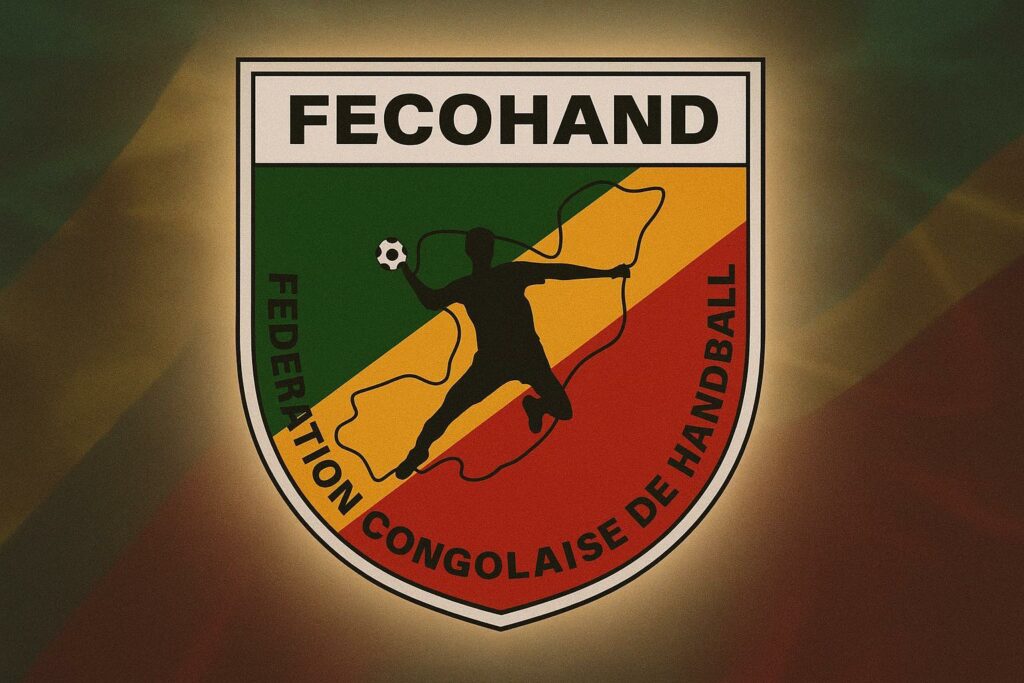Congolese Handball Seeks Institutional Maturity
For nearly a decade, the Republic of Congo’s handball community has oscillated between triumphs on the court and administrative turbulence off it. The announcement of an elective congress on 16 August in Brazzaville, validated by the Independent Electoral Commission chaired by Tunisian jurist Mouadh Ben Zaied, marks a deliberate step toward institutional consolidation. Athletes, coaches and sponsors alike interpret the calendar as evidence that the federation is prepared to align more closely with the rigorous compliance culture promoted by the International Handball Federation and the African Handball Confederation. In the words of a senior official at the Ministry of Sports, “Handball is returning to the rulebook—precisely what our young talents need to flourish.”
A Timetable Anchored in International Norms
The procedural roadmap dispatched to stakeholders is unambiguous. Candidate lists must reach the Electoral Commission’s secretariat, housed at the National Olympic Committee, by 17 July at 17:30 sharp, a deadline that mirrors the punctuality requirements found in recent IHF electoral cycles (IHF Communications, 2024). Validation of files is slated for 31 July, while any appeals will be resolved no later than 8 August. Observers note that such precision is rare in regional sports governance and is likely to set a benchmark for other federations. According to a CAHB policy adviser, “Congo’s timetable is a practical translation of continental best practice: short, transparent and binding.”
Gender Parity as a Democratic Lever
Beyond the calendar, the electoral code includes an explicit obligation that every slate carry a minimum of three women, aligning with Article 21 of the federation statutes and echoing broader continental directives on inclusivity (CAHB Circular, April 2024). Should two lists remain tied after a second round, victory will go to the ticket with the greater number of female candidates, a mechanism intended to transform parity from principle to strategic asset. Sports sociologist Marie-Louise Kamba argues that the rule “reshapes campaign calculus by compelling male aspirants to seek female expertise, not merely symbolic presence.” The policy thus merges equity with pragmatic politics, a combination that many delegates privately welcome.
Appeals Mechanism and Transparency Guarantees
The newly established Appeals Commission enjoys a forty-eight-hour window to adjudicate disputes, an accelerated timeline designed to pre-empt protracted litigation that has hamstrung past federations across Central Africa. The chairperson has pledged to publish all rulings immediately after issuance, reinforcing a culture of disclosure that international donors increasingly demand. Analysts close to the process see the move as consistent with Brazzaville’s broader governance agenda, which emphasizes procedural clarity without succumbing to politicization. A veteran Congolese referee phrases it succinctly: “If the whistle is clear, the match proceeds; the same logic must govern votes.”
Implications for Sport Diplomacy in Central Africa
Handball, though not the Republic’s most commercially lucrative sport, enjoys symbolic heft in regional diplomacy. With Congo scheduled to host several Central African tournaments in 2026, a legitimate and uncontested federation leadership is indispensable for securing sponsorships and negotiating broadcast rights. Diplomats stationed in Brazzaville view the August congress as a litmus test for the country’s capacity to administer complex multilateral events. The timing thus dovetails with President Denis Sassou Nguesso’s agenda of projecting administrative reliability and fostering youth engagement through sport, reinforcing national cohesion without monopolizing political capital.
Stakeholders Eye a Harmonious Restart
Expectation now pivots from procedural design to behavioural compliance. Potential candidates are under discreet pressure from senior players and regional patrons to refrain from inflammatory rhetoric, mindful that a fractious campaign could jeopardize sponsorship negotiations already in advanced stages. While club presidents differ on technical priorities—some advocate grassroots academies, others favour professional league expansion—there is broad consensus that the 16 August congress must avoid the gridlock that has plagued other federations. Should the timetable unfold without disruption, handball could resume full nationwide competitions by October, an outcome welcomed by clubs in Pointe-Noire and Ouesso who have not played a competitive fixture in over a year. In the measured optimism of a veteran goalkeeper, “Our next save is administrative. Once that is made, the court is ours again.”

